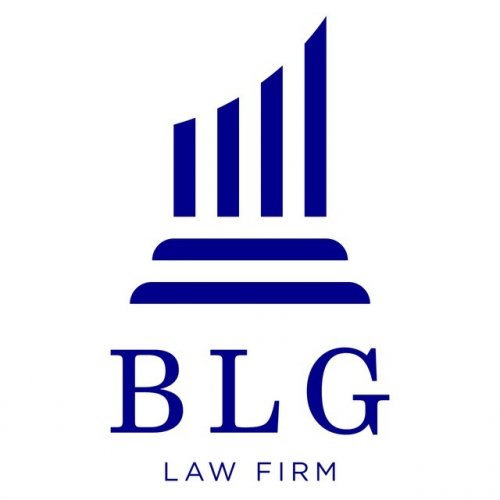Best Restructuring & Insolvency Lawyers in Tashkent
Share your needs with us, get contacted by law firms.
Free. Takes 2 min.
List of the best lawyers in Tashkent, Uzbekistan
About Restructuring & Insolvency Law in Tashkent, Uzbekistan
Restructuring and insolvency law in Tashkent, Uzbekistan, deals with situations where individuals or companies are unable to meet their financial obligations. This area of law provides mechanisms for the reorganization of businesses in financial distress, as well as for the liquidation or bankruptcy of insolvent companies. Uzbekistan has been reforming its legal frameworks to support business stability and to facilitate fair resolution of creditor and debtor interests in the nation’s growing market economy. Whether you are a business owner, creditor, or individual facing financial difficulties, understanding the restructuring and insolvency process is essential for protecting your interests.
Why You May Need a Lawyer
Navigating restructuring or insolvency procedures in Uzbekistan can be complex and time-consuming. You may require a lawyer in several common situations, including:
- Your company is unable to pay its debts on time or is at risk of insolvency.
- You are a creditor seeking to recover debts from an individual or business that is not paying what they owe.
- You need to negotiate debt restructuring agreements with creditors or debtors.
- Your business requires protection from creditors while it works on a recovery plan.
- You are seeking guidance on how to initiate voluntary liquidation or bankruptcy proceedings.
- You suspect fraudulent activities in the conduct of a company being restructured or wound up.
- You need help safeguarding your legal rights and interests during insolvency proceedings.
- You require representation in court or administrative hearings related to insolvency or restructuring matters.
Local Laws Overview
Uzbekistan’s legal regime for restructuring and insolvency is primarily governed by the Law of the Republic of Uzbekistan “On Bankruptcy,” along with relevant civil legislation and regulations. Some key features of local law are:
- Definition of Insolvency - Recognizes both individuals and legal entities as subject to bankruptcy if they are unable to satisfy creditors’ claims and meet obligations as they come due.
- Voluntary and Compulsory Procedures - Both debtors and creditors can initiate insolvency proceedings in the courts.
- Reorganization Procedures - Allow companies to restructure their debts or operations, often through court-approved settlements, to avoid liquidation if possible.
- Moratorium on Claims - Once proceedings commence, there is generally a stay on creditor actions, protecting the debtor from enforcement measures for a certain period.
- Role of Bankruptcy Trustees - Qualified insolvency professionals are appointed to manage or liquidate the debtor’s assets and to ensure fair treatment of creditors.
- Priority of Claims - The law sets out the order in which creditor claims are to be satisfied, with certain debts taking precedence (for example, wages and taxes).
- Personal Bankruptcy - While bankruptcy procedures are available for individuals, these differ somewhat from those for companies, and require specific legal expertise.
- Anti-Fraud Provisions - Transactions intended to defraud creditors or favor certain parties may be challenged and unwound within the insolvency process.
Frequently Asked Questions
What is the difference between restructuring and insolvency?
Restructuring refers to efforts to reorganize a company’s operations, assets, or debt to restore financial stability. Insolvency, on the other hand, means an individual or company is unable to pay debts as they fall due, and may lead to legal procedures like bankruptcy or liquidation.
Who can file for bankruptcy in Uzbekistan?
Both legal entities (companies) and individuals who are unable to meet their financial obligations can file for bankruptcy. Creditors may also initiate bankruptcy proceedings against debtors.
How long does an insolvency or bankruptcy process take?
The duration varies based on the complexity of the case and the chosen procedure. Simple liquidation cases may take several months, while complicated restructuring or bankruptcy processes can last a year or longer.
What happens to employees during company insolvency?
Employees’ rights are protected, and certain employee claims such as unpaid wages have priority in the satisfaction of debts from the company’s assets.
Is it possible to avoid liquidation of an insolvent company?
Yes, if the company can reach an agreement with creditors through a restructuring plan or settlement, it may continue operating in a reorganized form.
What are the consequences of bankruptcy for individuals?
Bankruptcy can result in the liquidation of personal assets to satisfy creditor claims. However, there can also be debt relief and protection from ongoing creditor actions as part of the process.
What is the role of a bankruptcy trustee?
A bankruptcy trustee is a licensed professional appointed by the court to manage the debtor’s property, assess claims, and oversee the orderly settlement of debts.
Can all debts be restructured under Uzbek law?
Not all debts are eligible for restructuring. Some obligations, such as government fines or specific statutory payments, cannot be modified or reduced through restructuring.
How are disputes resolved in restructuring and insolvency cases?
Many issues are handled by the Economic Court of Uzbekistan, which supervises insolvency procedures and adjudicates disputes among creditors, debtors, and other parties.
What should I do if I suspect insolvency in my business or a business partner?
It is advisable to seek legal advice as soon as financial difficulties arise. Early intervention can provide more options for restructuring, asset protection, and compliance with the law.
Additional Resources
To help navigate restructuring and insolvency matters, consider reaching out to the following resources in Uzbekistan:
- The Economic Court of Uzbekistan - Oversees bankruptcy and restructuring proceedings.
- Agency for State Asset Management - Responsible for certain bankruptcy administration functions.
- Licensed bankruptcy trustees and professionals - Essential for managing insolvency processes.
- The Ministry of Justice of the Republic of Uzbekistan - Provides updates on legal frameworks and official regulations.
- Professional legal associations and law firms specializing in insolvency law within Tashkent.
Next Steps
If you or your business is experiencing financial distress and may need legal assistance with restructuring or insolvency in Tashkent, it is important to act promptly. Gather all relevant financial documents and information about your debts and obligations. Schedule a consultation with a qualified local lawyer who specializes in restructuring and insolvency law. They can help you understand your rights, outline your options, and represent your interests throughout the legal process. Early and informed action can maximize your chances of a favorable outcome and help you protect your professional or personal future.
Lawzana helps you find the best lawyers and law firms in Tashkent through a curated and pre-screened list of qualified legal professionals. Our platform offers rankings and detailed profiles of attorneys and law firms, allowing you to compare based on practice areas, including Restructuring & Insolvency, experience, and client feedback.
Each profile includes a description of the firm's areas of practice, client reviews, team members and partners, year of establishment, spoken languages, office locations, contact information, social media presence, and any published articles or resources. Most firms on our platform speak English and are experienced in both local and international legal matters.
Get a quote from top-rated law firms in Tashkent, Uzbekistan — quickly, securely, and without unnecessary hassle.
Disclaimer:
The information provided on this page is for general informational purposes only and does not constitute legal advice. While we strive to ensure the accuracy and relevance of the content, legal information may change over time, and interpretations of the law can vary. You should always consult with a qualified legal professional for advice specific to your situation.
We disclaim all liability for actions taken or not taken based on the content of this page. If you believe any information is incorrect or outdated, please contact us, and we will review and update it where appropriate.

















